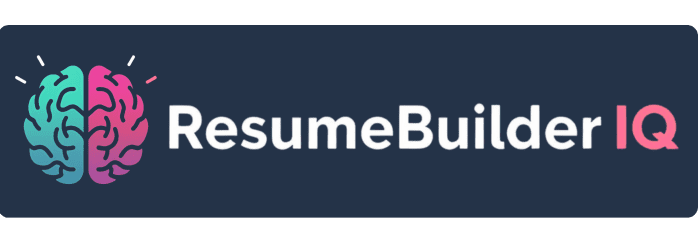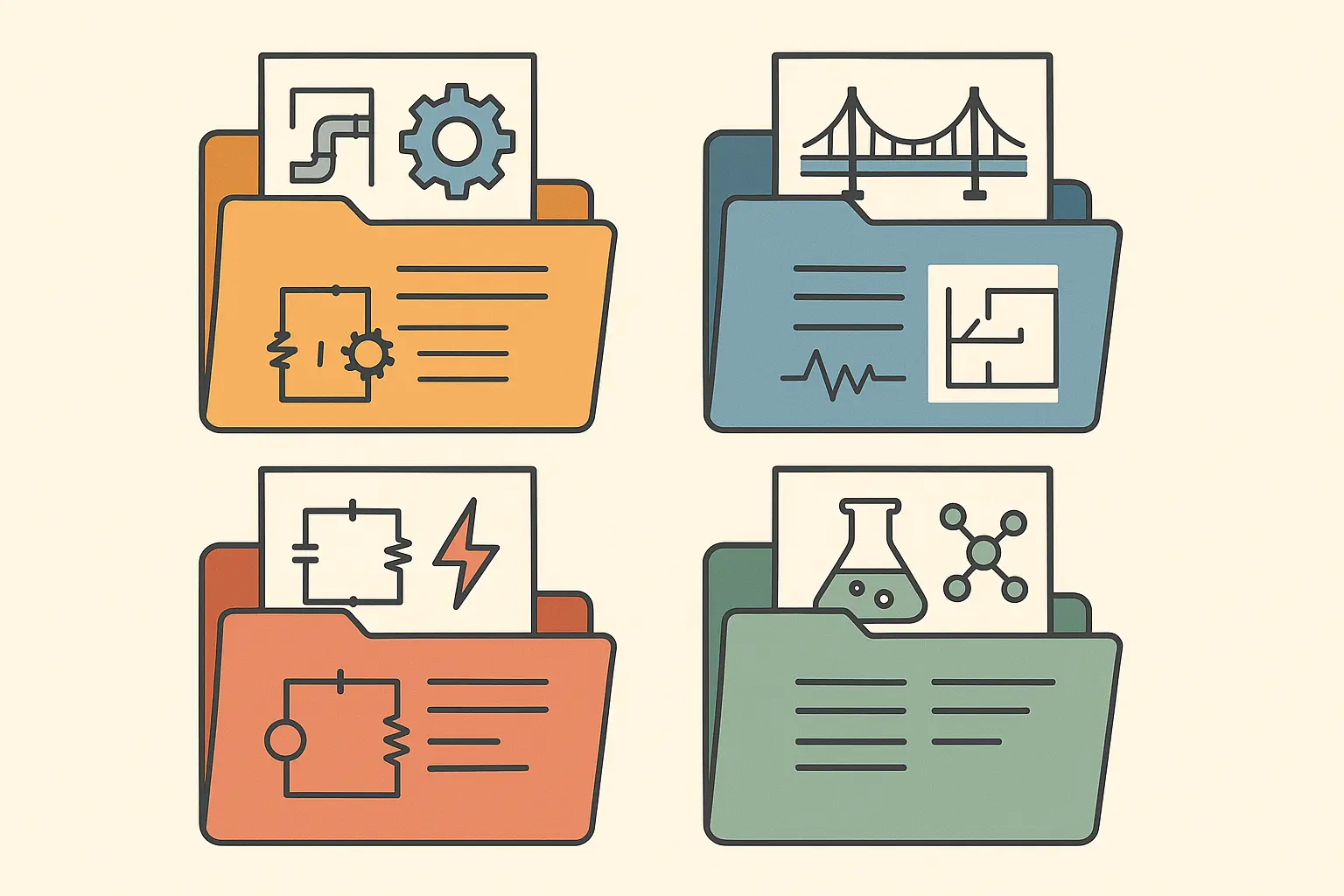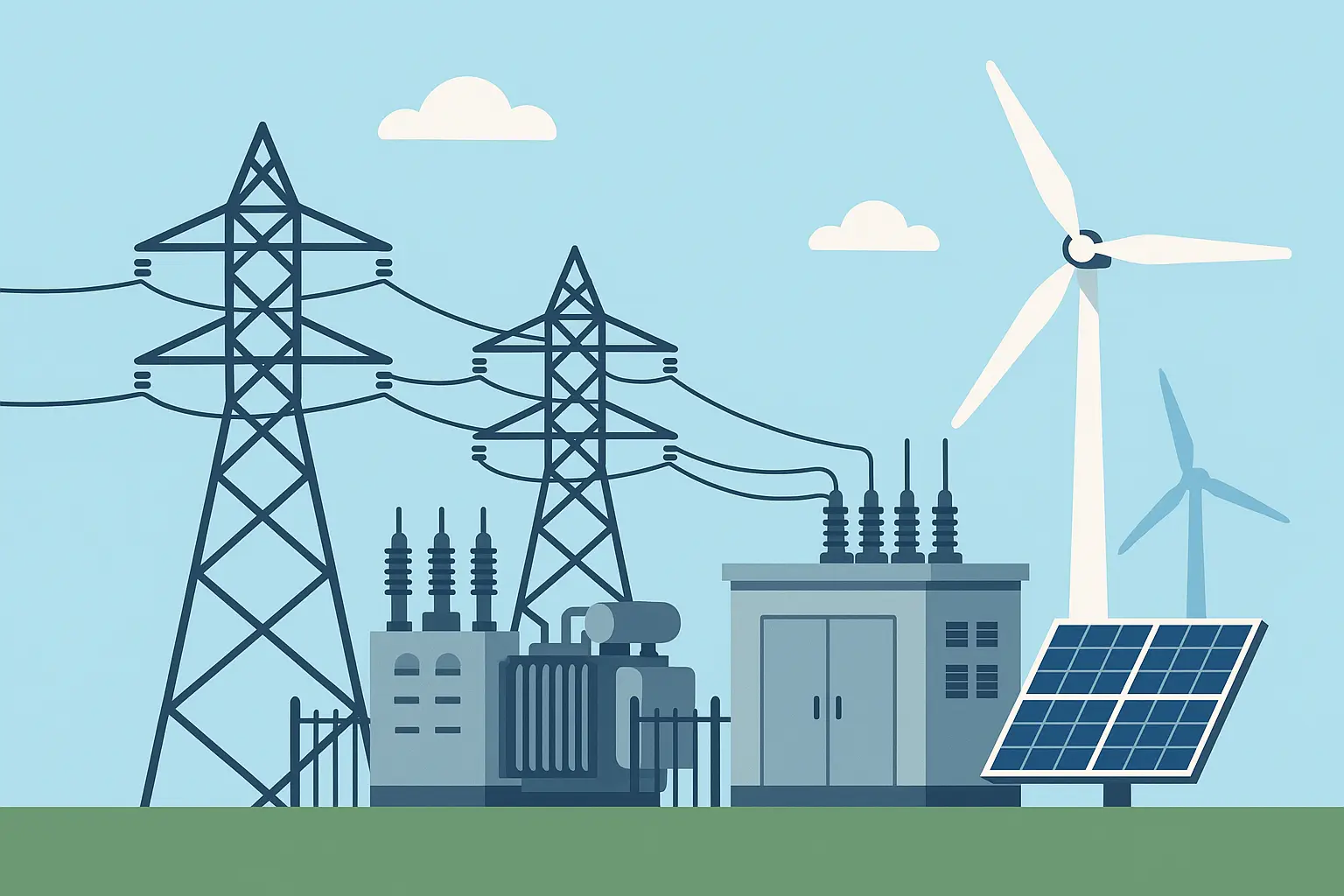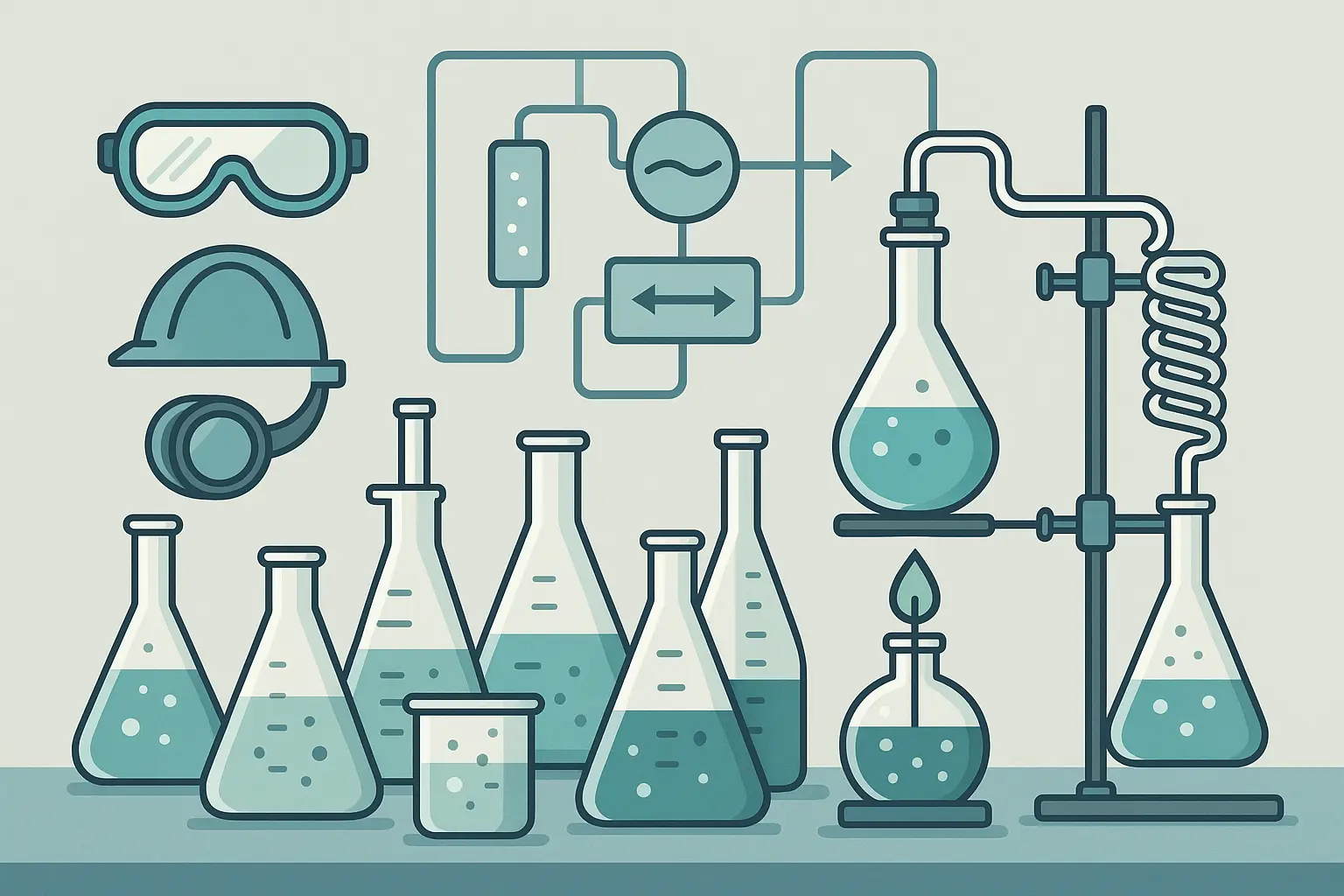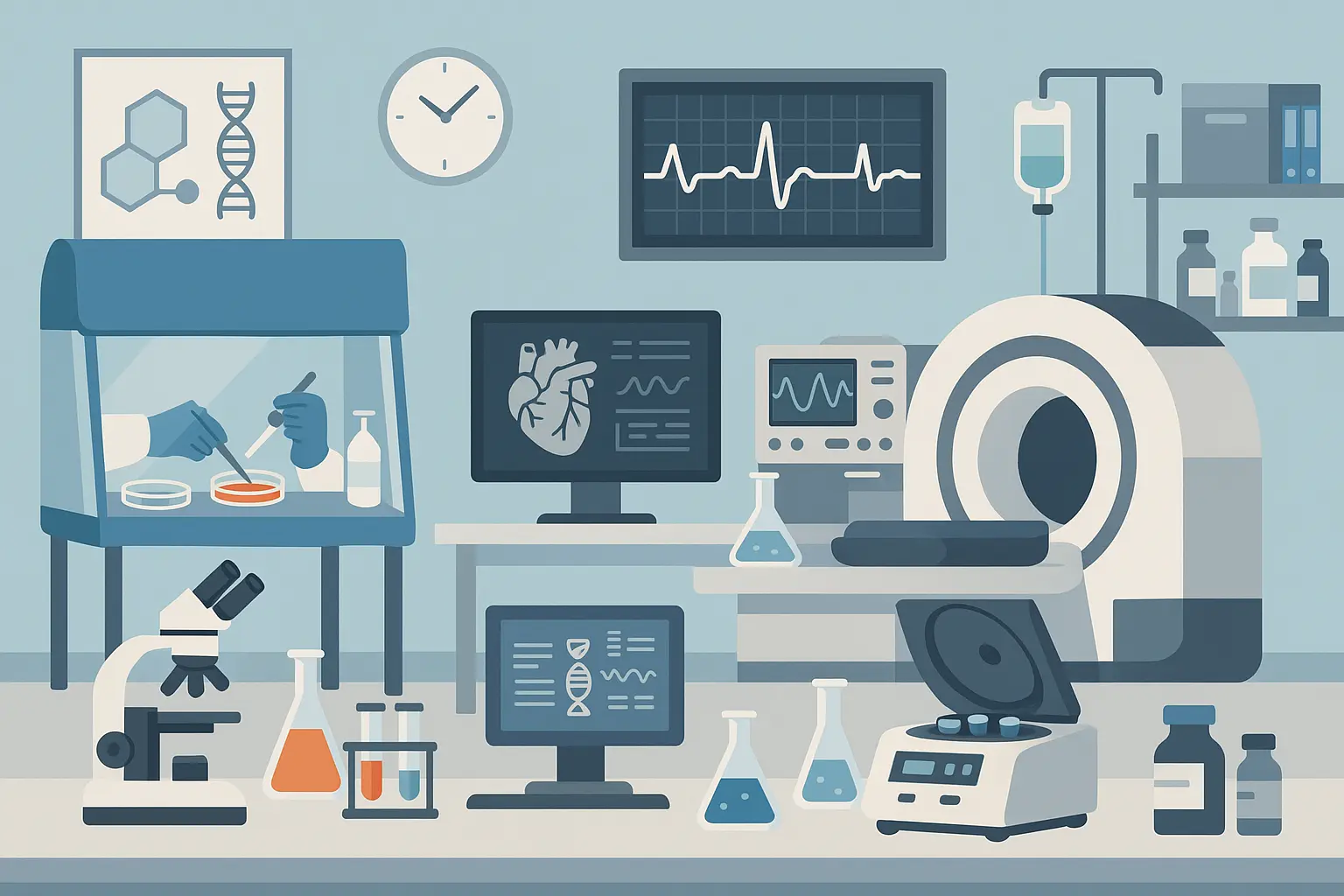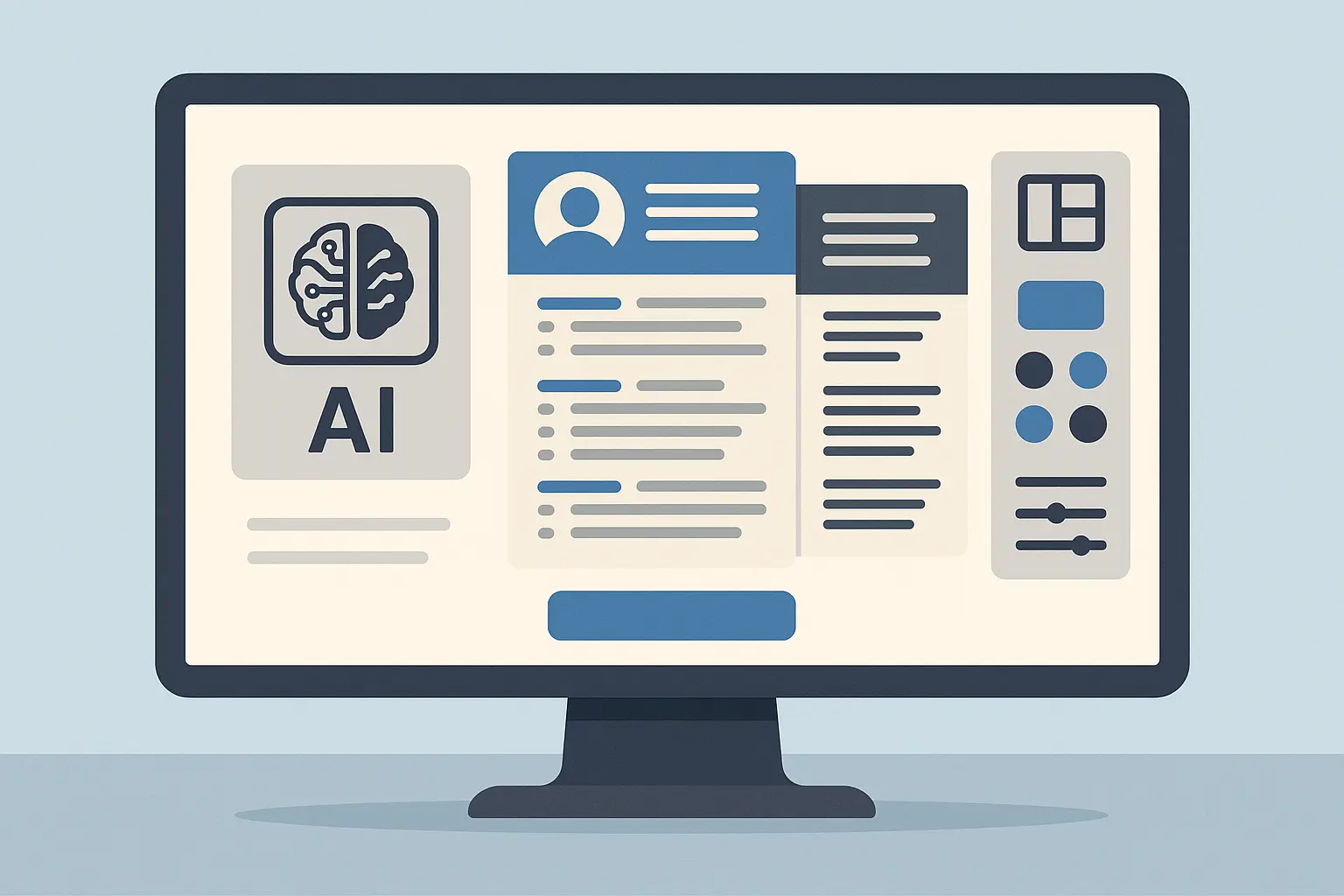25 Engineering Cover Letter Examples That Actually Get You Hired

I’ll never forget the crushing silence after sending out my first 20 engineering cover letters. Zero responses. Turns out, my “one-size-fits-all” approach was about as effective as using a hammer for brain surgery. My generic template completely failed to showcase what I could actually do or prove I understood what the company needed.
Let’s be honest—the engineering job market is brutal right now, with 75% of applications getting filtered out by automated systems before any human even sees them. But here’s the thing: once I figured out how to write cover letters that actually work, everything changed.
I’m going to show you exactly how to write engineering cover letters that get past those pesky robots and make hiring managers want to meet you. You’ll see 25 real examples from software developers to biomedical engineers—each one crafted to pass ATS screening while making you sound like the problem-solver they desperately need.
Source: University of Michigan Career Center
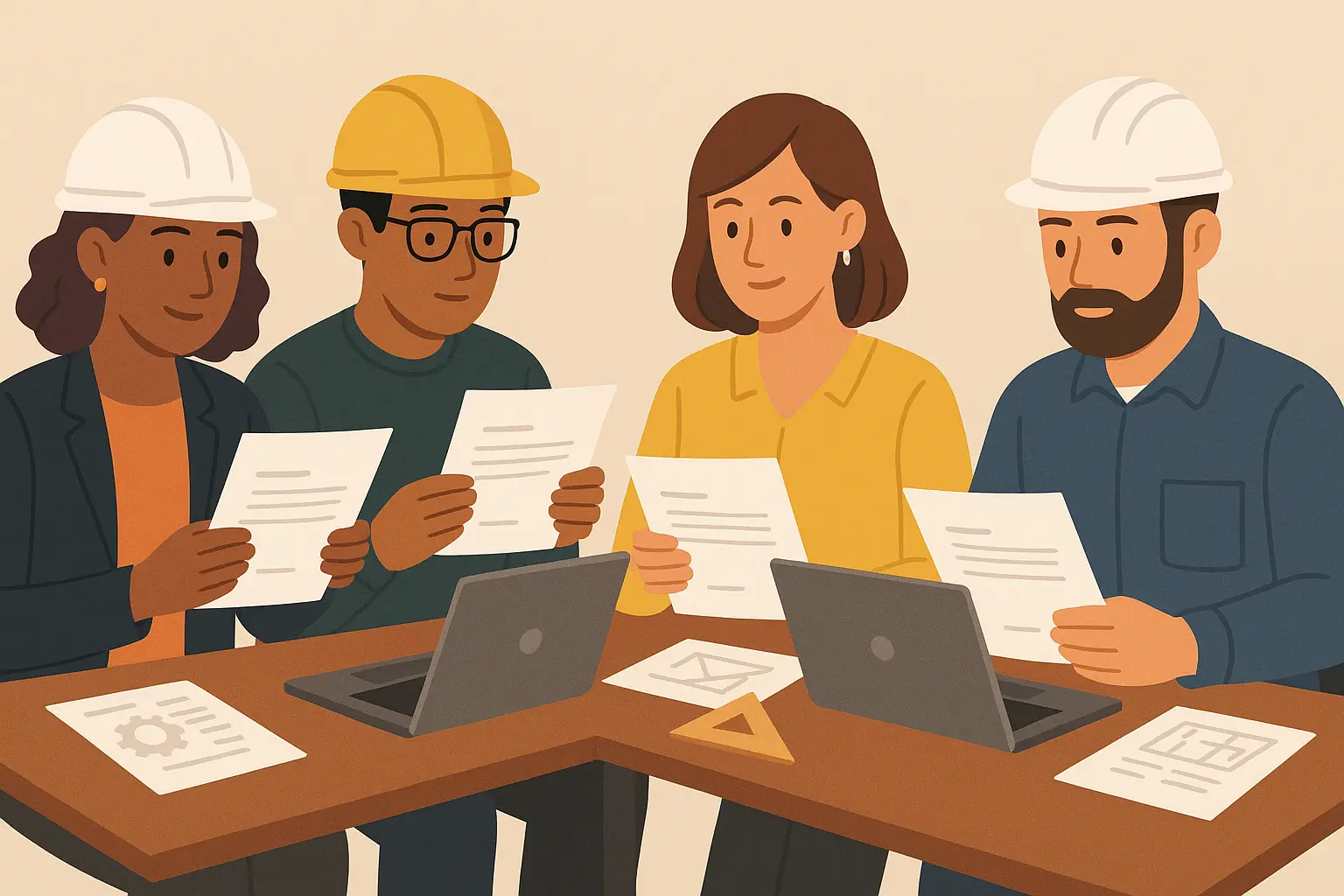
Table of Contents
-
What Actually Makes Engineering Cover Letters Work in 2025
-
25 Engineering Cover Letter Examples by Discipline
-
Software Engineering Examples (5)
-
Mechanical Engineering Examples (5)
-
Electrical Engineering Examples (5)
-
Civil Engineering Examples (5)
-
Chemical Engineering Examples (3)
-
Biomedical Engineering Examples (2)
-
-
What Separates Winners from the “Thanks But No Thanks” Pile
-
How Resume Builder IQ Transforms Your Engineering Applications
-
The Bottom Line
TL;DR
-
Your engineering cover letter needs to speak two languages: technical expertise and business impact
-
Numbers tell stories that words alone can’t—quantify everything you can
-
Those ATS systems are looking for specific keywords, but keyword stuffing makes you sound like a robot
-
Problem-solving examples with real outcomes show your engineering mindset better than any skill list
-
One size fits none—every application needs customization based on the actual job and company
-
Clean formatting isn’t just pretty—it shows you pay attention to details (which engineers should)
-
Company research creates connections that generic applications never will
What Actually Makes Engineering Cover Letters Work in 2025
Here’s the deal: modern engineering cover letters need to work for both robots and humans. You’ve got to get past the ATS systems that filter out 75% of applications, then grab the attention of hiring managers who are drowning in technical jargon all day.
The cover letters that actually get results do something most engineers struggle with—they translate complex technical work into clear business value. When you say you “optimized the database,” that’s nice. When you say you “cut query response time by 65% and saved $180K in server costs,” now we’re talking.
If you want your entire application package to work together seamlessly, check out our complete guide to top engineering resume builders to make sure your resume backs up what your cover letter promises.
Stop Speaking Only Engineer and Start Speaking Business Too
Look, I get it. You’re proud of that microservices architecture you built or the PID controller you tuned to perfection. But here’s what hiring managers actually care about: Can you solve problems? Can you save them money? Can you make their lives easier?
The strongest cover letters I’ve seen do both—they prove you know your technical stuff while showing you understand why it matters to the business.
|
Technical Thing You Did |
What It Actually Means |
Why Anyone Should Care |
|---|---|---|
|
Implemented microservices architecture |
Made the system more reliable |
99.2% uptime = happy customers |
|
Applied lean manufacturing principles |
Streamlined the process |
$1.2M saved = bigger bonuses for everyone |
|
Redesigned the power grid layout |
Made electricity more reliable |
35% fewer outages = fewer angry calls |
|
Optimized the chemical process |
Made it run smoother |
23% faster = more product, less cost |
|
Updated environmental controls |
Kept us legal |
100% compliance = no scary government visits |
Numbers Are Your Best Friend
We’ve all been there—staring at a blank document at 2 AM, wondering how to make “fixed bugs” sound impressive. (Spoiler alert: it doesn’t.)
Instead of saying you “improved manufacturing processes,” tell me you “redesigned the transmission assembly line, cutting cycle time by 23% and saving $1.2M annually.” See the difference? The first one could mean you moved a trash can. The second one shows you’re the kind of engineer who moves mountains.
Show Your Problem-Solving Brain in Action
Here’s what separates real engineers from people who just know how to use CAD software: you solve problems that matter. Your cover letter should walk me through how your brain works when you’re faced with a challenge.
Don’t just tell me what you did—show me how you think:
Instead of this: “I improved system reliability.”
Try this: “When our manufacturing line was down 15% of the time due to random equipment failures, I implemented predictive maintenance using IoT sensors and machine learning. Result? Downtime dropped to 2%, saving $800K annually while boosting overall equipment effectiveness by 25%.”
That’s the engineering mindset in action. Problem → Analysis → Solution → Results.
Outsmart the Robots Without Sounding Like One
Those applicant tracking systems are looking for specific words, but stuffing your cover letter full of keywords makes you sound like you were written by ChatGPT having a bad day.
The trick is weaving technical terms naturally into stories about what you’ve accomplished. When you mention “PCI DSS compliance” while explaining how you secured a payment system, you’re showing expertise, not just checking boxes.
For more ways to beat the ATS game, check out our ATS-friendly resume secrets to make sure your entire application gets through the digital gatekeepers.
25 Engineering Cover Letter Examples by Discipline
Alright, here’s where the rubber meets the road. I’ve collected 25 cover letter examples that actually work—from fresh grads to senior engineers, across six major disciplines. Each one shows you how to balance technical credibility with clear communication, because let’s face it, if they can’t understand what you’re talking about, they’re not going to hire you.
These aren’t perfect templates to copy word-for-word. They’re examples of how real engineers have successfully connected their experience to what employers actually need.
Software Engineering Examples
1. Senior Full-Stack Developer
This is for experienced developers who are tired of working at boring companies and want to jump into the fintech world. Notice how it balances technical depth with business awareness—and actually mentions specific numbers that matter.
Context: Experienced developer ready to tackle fintech challenges
Dear Hiring Manager,
As a senior full-stack developer with 7+ years of experience building applications that don't crash when they matter most, I'm excited to contribute to [Company Name]'s mission of revolutionizing financial technology. Your recent Series B funding announcement and commitment to blockchain integration align perfectly with my passion for emerging technologies that actually solve real problems.
In my current role at TechCorp, I led the development of a microservices architecture that took our system uptime from "pretty good" to 99.2% while improving response times by 40%. I architected and implemented a React/Node.js application that now serves 2.3 million users without breaking a sweat. My experience with AWS, Docker, and Kubernetes means I can contribute immediately to your cloud-first infrastructure—no six-month learning curve required.
What really excites me about this opportunity is your focus on regulatory compliance in financial services. I recently completed a project implementing PCI DSS compliance measures, working closely with security teams to ensure data protection while maintaining system performance. This experience, combined with my JavaScript, Python, and SQL expertise, positions me well to tackle the unique challenges in fintech development.
I would welcome the opportunity to discuss how my technical skills and collaborative approach can contribute to your engineering team's continued success.
Best regards,
[Your Name]
2. Entry-Level Software Engineer
Fresh out of college and worried you don’t have enough “real” experience? This example shows how to leverage what you do have—academic projects, internships, and that burning desire to learn—into something that actually impresses hiring managers.
Context: Recent computer science graduate who’s ready to prove themselves
Key Elements:
-
Turns coursework and capstone projects into real achievements
-
Shows internship experience made an actual impact
-
Demonstrates genuine enthusiasm for learning (not just buzzword bingo)
-
Proves they’ve done their homework on the company’s tech stack
3. DevOps Engineer
This example is for infrastructure specialists who want to work at companies that actually understand what “cloud-native” means. It focuses on automation expertise and the kind of cost savings that make CFOs happy.
Context: Infrastructure specialist targeting companies that get DevOps
Key Elements:
-
Focuses on automation that saves time and money
-
Quantifies infrastructure improvements that actually matter
-
Shows deep knowledge of containerization without getting too nerdy
-
Emphasizes security and compliance (because nobody wants to be the next data breach headline)
4. Mobile App Developer
Perfect for iOS/Android developers applying to companies that care about user experience. This example highlights app store success metrics and shows you understand that great code means nothing if users hate the app.
Context: Mobile developer who builds apps people actually want to use
Key Elements:
-
Highlights app store success that you can actually measure
-
Shows cross-platform development skills (because versatility matters)
-
Demonstrates understanding of user experience (not just pretty interfaces)
-
Includes programming languages and frameworks without overwhelming
5. Data Engineer
This targets big data specialists who want to work somewhere that actually has big data problems worth solving. It emphasizes large-scale processing experience and modern data stack knowledge.
Context: Data engineer ready to tackle real big data challenges
Key Elements:
-
Emphasizes experience with data that actually qualifies as “big”
-
Shows knowledge of modern tools (not just SQL from 2010)
-
Quantifies pipeline improvements that save time and money
-
Demonstrates understanding of data governance (because messy data helps nobody)
Mechanical Engineering Examples
6. Manufacturing Engineer
This example targets process improvement specialists who want to work in automotive—an industry that actually appreciates engineers who can make things run better, faster, and cheaper.
Context: Process improvement specialist ready to make manufacturing awesome
Dear [Hiring Manager Name],
With 5 years of manufacturing engineering experience and a proven track record of making things work better than they're supposed to, I am eager to contribute to [Company Name]'s reputation for automotive excellence. Your commitment to sustainable manufacturing and Industry 4.0 integration resonates strongly with my professional values and technical expertise.
At AutoParts Inc., I led a cross-functional team that completely redesigned our transmission assembly line. The result? A 23% reduction in cycle time and $1.2M in annual cost savings. By implementing statistical process control and predictive maintenance protocols, we achieved 99.1% uptime—the highest in company history. My experience with CAD software (SolidWorks, AutoCAD), PLCs, and six sigma methodologies has prepared me to drive similar improvements in your manufacturing operations.
Your recent investment in automated quality inspection systems particularly interests me, as I recently completed a project implementing computer vision for defect detection. We reduced manual inspection time by 60% while improving accuracy rates to 99.8%. This experience, combined with my mechanical engineering degree and ASQ certification, positions me well to support your quality and efficiency initiatives.
I am excited about the opportunity to discuss how my manufacturing expertise and continuous improvement mindset can contribute to your team's success.
Sincerely,
[Your Name]
Real Problem-Solving Example:
“Challenge: Assembly line bottleneck causing 15% production delays and lots of frustrated supervisors
Solution: Applied lean manufacturing principles with detailed time-motion studies
Result: 23% cycle time reduction, $1.2M annual savings, and 99.1% uptime that made everyone happy”
7. Design Engineer
This example targets product development roles where creativity meets practicality. It emphasizes innovation while showing you understand manufacturing constraints and cost optimization.
Context: Product developer who creates things people actually want to buy
Key Elements:
-
Emphasizes creative problem-solving that leads to real products
-
Highlights successful launches with measurable market impact
-
Shows proficiency in design software and rapid prototyping
-
Demonstrates understanding that great design means nothing if you can’t manufacture it
8. HVAC Engineer
For building systems specialists who want to work on projects that actually matter. This focuses on energy efficiency achievements and sustainability—because nobody wants to work in a building that’s too hot in summer and too cold in winter.
Context: Building systems specialist who makes buildings comfortable and efficient
Key Elements:
-
Focuses on energy efficiency that saves real money
-
Quantifies system performance improvements that matter to building owners
-
Shows knowledge of building codes (because nobody wants legal trouble)
-
Emphasizes project management and client skills (because technical skills alone aren’t enough)
9. Aerospace Engineer
This example targets structural analysis roles at defense contractors. It highlights security clearance and government project experience—because in aerospace, credentials and compliance actually matter.
Context: Structural engineer ready to work on things that fly (and need to stay flying)
Key Elements:
-
Highlights security clearance and government project experience
-
Shows knowledge of aerospace materials and rigorous testing
-
Emphasizes safety-critical system design (because failure isn’t an option)
-
Demonstrates understanding of regulatory requirements (FAA, DoD standards)
10. Robotics Engineer
Perfect for automation specialists in manufacturing. This emphasizes programming skills and control systems expertise while showing you can work with teams across multiple engineering disciplines.
Context: Automation specialist who makes robots do useful things
Key Elements:
-
Emphasizes programming skills (Python, C++, ROS) and control systems
-
Shows experience with sensors, actuators, and vision systems that actually work
-
Quantifies automation improvements and return on investment
-
Demonstrates ability to collaborate across engineering disciplines
Electrical Engineering Examples
11. Power Systems Engineer
This comprehensive example targets grid modernization roles at utility companies. It showcases power system analysis expertise while emphasizing renewable energy integration—because the future of power is definitely not coal.
Context: Power engineer ready to modernize the electrical grid
Dear [Hiring Manager Name],
As an electrical engineer with 6 years of power systems experience, I am excited about the opportunity to contribute to [Company Name]'s grid modernization initiatives. Your commitment to renewable energy integration and smart grid technology aligns perfectly with my expertise in power system analysis and sustainable energy solutions.
In my current role at PowerGrid Solutions, I designed and implemented a microgrid system that improved power reliability by 35% for a 10,000-home community while reducing operational costs by $800K annually. My experience with MATLAB/Simulink, PSS/E, and ETAP has enabled me to perform complex load flow analysis and fault studies for transmission systems up to 500kV. Additionally, I hold a Professional Engineer license and have completed NERC certification requirements.
Your recent smart grid deployment particularly interests me, as I led a similar project implementing advanced metering infrastructure (AMI) and demand response systems. This initiative resulted in 15% peak load reduction and improved outage response times by 40%. My experience with SCADA systems, protective relaying, and cybersecurity protocols positions me well to support your critical infrastructure modernization efforts.
I would welcome the opportunity to discuss how my power systems expertise and commitment to grid reliability can contribute to your engineering team's continued success.
Best regards,
[Your Name]
12. Electronics Design Engineer
This example targets circuit design roles at consumer electronics companies. It emphasizes both analog and digital circuit design while highlighting successful product launches—because great circuits that never make it to market help nobody.
Context: Circuit designer who creates electronics people actually use
Key Elements:
-
Emphasizes both analog and digital circuit design expertise
-
Highlights successful product launches and intellectual property development
-
Shows proficiency in industry-standard design tools
-
Demonstrates understanding of manufacturing and testing requirements
13. Control Systems Engineer
Designed for industrial automation roles where PLC programming and process optimization actually matter. This focuses on efficiency gains and safety systems—because industrial accidents are expensive and tragic.
Context: Industrial automation engineer who makes factories run smoothly
Key Elements:
-
Focuses on PLC programming and human-machine interface development
-
Quantifies process improvements that save time and money
-
Shows knowledge of industrial communication protocols
-
Emphasizes safety system design and regulatory compliance
14. RF Engineer
This example targets wireless communications roles at telecommunications companies. It highlights antenna design and propagation modeling while demonstrating knowledge of the latest wireless standards.
Context: RF engineer who makes wireless communication actually work
Key Elements:
-
Highlights antenna design and RF propagation modeling experience
-
Shows knowledge of current wireless standards (5G, Wi-Fi, Bluetooth)
-
Demonstrates experience with specialized test equipment and measurement techniques
-
Emphasizes signal processing and network optimization skills
15. Embedded Systems Engineer
Tailored for IoT device development at technology startups. This emphasizes microcontroller programming and real-time systems while showing you understand power constraints and wireless connectivity.
Context: Embedded engineer who makes tiny computers do big things
Key Elements:
-
Emphasizes microcontroller programming and real-time operating systems
-
Shows low-power design and battery optimization experience
-
Demonstrates wireless connectivity and IoT platform knowledge
-
Highlights debugging skills (because embedded bugs are the worst kind of bugs)
Civil Engineering Examples
16. Structural Engineer
This comprehensive example targets infrastructure design roles at consulting firms. It showcases structural analysis expertise while emphasizing sustainable design and client relationship management.
Context: Structural engineer who designs buildings that don’t fall down
Dear [Hiring Manager Name],
With a Master's degree in Structural Engineering and 4 years of experience designing infrastructure that actually stays standing, I am excited to contribute to [Company Name]'s reputation for innovative structural solutions. Your recent award for the Downtown Bridge project demonstrates the type of challenging, high-impact work that gets me excited about coming to work every day.
At StructuralWorks Inc., I designed a 15-story mixed-use building that achieved LEED Gold certification while staying 8% under budget through innovative steel-concrete composite design. My expertise with SAP2000, ETABS, and SAFE enabled me to optimize the structural system for both seismic resistance and constructability. Additionally, I managed client relationships and coordinated with architectural teams to ensure design integration and project success.
Your focus on sustainable infrastructure particularly resonates with me, as I recently completed a post-tensioned concrete design that reduced material usage by 20% while exceeding performance requirements. My Professional Engineer license and experience with building codes (IBC, AISC, ACI) position me well to contribute to your diverse project portfolio from day one.
I am eager to discuss how my structural analysis expertise and collaborative approach can support your team's continued growth and project success.
Sincerely,
[Your Name]
17. Transportation Engineer
This example targets traffic systems roles at municipal governments. It emphasizes traffic modeling while showing you understand that transportation planning affects real people’s daily lives.
Context: Transportation engineer who makes traffic flow better
Key Elements:
-
Emphasizes traffic modeling and transportation simulation expertise
-
Shows understanding of transportation planning and policy development
-
Highlights public sector experience and community stakeholder management
-
Demonstrates knowledge of accessibility requirements and safety regulations
18. Environmental Engineer
Designed for water treatment specialists at environmental consulting firms. This focuses on regulatory compliance and environmental impact assessment—because clean water and air aren’t optional.
Context: Environmental engineer who actually helps save the planet
Key Elements:
-
Focuses on regulatory compliance and environmental impact assessment
-
Quantifies pollution reduction and remediation project successes
-
Shows knowledge of environmental regulations (EPA, state requirements)
-
Emphasizes field work experience and environmental data analysis
19. Geotechnical Engineer
This example targets foundation design roles at construction companies. It highlights soil analysis and foundation design while showing you understand geological conditions and risk assessment.
Context: Geotechnical engineer who makes sure buildings have solid foundations
Key Elements:
-
Highlights soil analysis and geotechnical investigation experience
-
Shows knowledge of geological conditions and laboratory testing
-
Demonstrates experience with deep foundations and earth retention systems
-
Emphasizes safety protocols and geotechnical risk assessment
20. Construction Engineer
Tailored for project management roles at general contractors. This emphasizes project management and scheduling while highlighting cost control achievements and leadership capabilities.
Context: Construction engineer who gets projects done on time and under budget
Key Elements:
-
Emphasizes project management and construction scheduling experience
-
Shows knowledge of construction methods and material specifications
-
Highlights cost control achievements and budget management
-
Demonstrates leadership capabilities and cross-functional team coordination
Chemical Engineering Examples
21. Process Engineer
This example targets optimization roles at pharmaceutical companies. It emphasizes process optimization and scale-up while showing knowledge of GMP requirements—because when you’re making medicine, quality isn’t negotiable.
Context: Process engineer who makes pharmaceutical manufacturing better
Key Elements:
-
Emphasizes process optimization and manufacturing scale-up experience
-
Shows knowledge of Good Manufacturing Practices and FDA regulations
-
Highlights cost reduction initiatives and efficiency improvements
-
Demonstrates experience with process simulation software and statistical analysis
22. Environmental Engineer
Designed for sustainability roles at chemical manufacturing companies. This focuses on waste reduction and environmental compliance while highlighting green chemistry initiatives.
Context: Environmental engineer making chemical manufacturing more sustainable
Key Elements:
-
Focuses on waste reduction and environmental compliance programs
-
Shows knowledge of environmental regulations and permitting
-
Highlights green chemistry principles and sustainable process design
-
Demonstrates experience with life cycle assessment and environmental impact analysis
23. Materials Engineer
This example targets R&D roles at advanced materials companies. It emphasizes materials characterization and testing while highlighting patent applications and research achievements.
Context: Materials engineer who develops the materials of the future
Key Elements:
-
Emphasizes materials characterization and advanced testing methodologies
-
Shows knowledge of polymer science and nanotechnology applications
-
Highlights intellectual property development and research publications
-
Demonstrates experience with analytical instrumentation and data interpretation
Biomedical Engineering Examples
24. Medical Device Engineer
This example targets product development roles at medical device companies. It emphasizes FDA regulatory experience and design controls—because when devices go inside people, everything has to be perfect.
Context: Medical device engineer who creates technology that saves lives
Key Elements:
-
Emphasizes FDA regulatory experience and medical device design controls
-
Shows knowledge of biocompatibility testing and sterilization methods
-
Highlights clinical trial support and risk management protocols
-
Demonstrates experience with ISO 13485 quality management systems
25. Bioprocess Engineer
Designed for manufacturing roles at biotechnology companies. This focuses on bioreactor design and cell culture processes while showing knowledge of cGMP requirements.
Context: Bioprocess engineer who makes biological manufacturing work
Key Elements:
-
Focuses on bioreactor design and cell culture optimization
-
Shows knowledge of current Good Manufacturing Practices
-
Highlights bioprocess scale-up experience and process validation
-
Demonstrates experience with analytical methods and quality control systems
What Separates Winners from the “Thanks But No Thanks” Pile
After looking at hundreds of engineering cover letters, here’s what separates the ones that get interviews from the ones that get ignored. The winners consistently do a few things really well, while the losers make the same predictable mistakes over and over.
The highest-performing examples balance technical credibility with clear communication, demonstrate systematic problem-solving, and show they’ve actually researched the company. Most importantly, they prove their value with numbers instead of just claiming they’re “detail-oriented” and “hardworking.”
If you want to make sure your formatting doesn’t sabotage your content, check out our professional resume format guide to ensure your entire application looks as professional as your engineering work.
|
What Winners Do |
What Losers Do |
Why It Matters |
|---|---|---|
|
“Reduced server costs by $180K” |
“Improved efficiency” |
Numbers prove impact |
|
Natural keyword integration |
Keyword stuffing |
Humans still make hiring decisions |
|
Specific problem-solving examples |
Generic skill lists |
Shows how you think |
|
Company-specific research |
Generic templates |
Proves genuine interest |
|
Clean, professional formatting |
Messy layouts |
First impressions matter |
They Actually Quantify Their Impact
The strongest examples consistently include specific metrics that demonstrate real business value. When you say you “optimized database queries,” that could mean anything. When you say you “reduced page load times by 65% and cut server costs by $180K annually,” now I understand why you matter.
Feeling like your achievements aren’t “impressive enough”? Here’s a secret: that time you debugged a system that was driving everyone crazy? That’s gold. The key is showing the impact, not just the task.
Weak vs. Strong Achievement Examples:
Weak: “Worked on improving system performance and reducing operational costs”
Strong: “Optimized database queries and implemented Redis caching, reducing page load times by 65% and cutting server costs by $180K annually while supporting 40% user growth”
They Show Their Engineering Brain in Action
Real engineers solve problems that matter, and the best cover letters walk you through exactly how their brain works when faced with a challenge. They don’t just list what they did—they show their analytical process and creative solutions.
Pro tip from someone who’s been there: That project where everything went wrong but you figured it out anyway? That’s your cover letter gold mine.
They Speak Human, Not Just Engineer
Look, here’s what hiring managers actually care about: Can you solve problems? Can you save them money? Can you make their lives easier? Everything else is just noise.
The strongest performers avoid overwhelming readers with jargon while still proving they know their stuff. They use industry-standard terminology that ATS systems recognize while keeping things readable for the humans who actually make hiring decisions.
They Actually Research the Company
Generic applications get generic results. The cover letters that work mention specific projects, recent company news, or technical challenges the company is facing. This isn’t about brown-nosing—it’s about proving you’re genuinely interested in working there, not just sending out mass applications.
How Resume Builder IQ Transforms Your Engineering Applications
Full disclosure: I built Resume Builder IQ because I was tired of seeing great engineers get overlooked because of crappy cover letters. It’s designed specifically for people like us who’d rather be solving technical problems than writing marketing copy about ourselves.
The AI-powered platform understands engineering terminology and industry requirements, offering tailored guidance that helps you balance technical depth with accessible communication. Most importantly, it saves you time so you can focus on what you do best—engineering—while still creating application materials that actually work.
You can combine this with our write cover letter noticed strategies for even better results.
AI That Actually Gets Engineering
Unlike generic writing tools, Resume Builder IQ’s AI specifically understands engineering applications. It helps you craft cover letters with appropriate technical keywords while keeping them readable for humans. The system knows the difference between software engineering and mechanical engineering requirements, so your cover letter actually makes sense for your field.
|
Traditional Approach |
Resume Builder IQ |
Time Saved |
Success Rate |
|---|---|---|---|
|
Manual keyword research |
AI-powered industry analysis |
4 hours → 15 minutes |
85% vs 45% ATS pass |
|
Generic templates |
Engineering-specific guidance |
6 hours → 30 minutes |
3x more interviews |
|
Manual company research |
Automated personalization |
2 hours → 10 minutes |
4x response rate |
|
Multiple document versions |
Integrated platform |
1 hour → 5 minutes |
60% better presentation |
|
Manual proofreading |
AI grammar and technical review |
30 minutes → instant |
95% error reduction |
Templates That Don’t Suck
The platform offers templates specifically designed for engineering professionals across all major disciplines. Whether you’re showcasing software development projects or highlighting manufacturing improvements, you get visually appealing formats that present technical achievements professionally.
Everything Works Together
One huge advantage is seamless integration between resume and cover letter creation. Your formatting, messaging, and personal branding stay consistent across your entire application package. The AI can pull relevant achievements from your resume to suggest compelling cover letter content, so you’re not starting from scratch every time.
Built for Busy Engineers
Engineering professionals juggling multiple projects and tight deadlines can create polished, customized cover letters in minutes instead of hours. The AI-powered suggestions eliminate the blank page problem, letting you focus on highlighting relevant achievements rather than struggling with structure and formatting.
For comprehensive technical skills optimization, check out our irresistible technical skills guide to ensure your skills presentation is on point across all application materials.
Ready to create engineering cover letters that actually get results? [Start your free trial with Resume Builder IQ today] and join thousands of engineers who’ve landed interviews at top companies.
The Bottom Line
Here’s what I’ve learned after helping hundreds of engineers land interviews: success isn’t about having the most impressive technical background or knowing every programming language ever invented. It’s about communicating your value clearly and connecting your experience to what employers actually need.
Your engineering cover letter is your first chance to show you can solve problems, think analytically, and communicate effectively—all skills that matter way more than your ability to recite technical specifications. Whether you’re a software engineer showcasing scalable architecture experience or a mechanical engineer highlighting manufacturing improvements, the key is connecting your technical achievements to real business outcomes.
Worried you don’t have enough experience? Every senior engineer started somewhere. Focus on what you have learned and accomplished, not what you lack. That debugging project that saved the day? That process improvement that made everyone’s job easier? That’s the stuff hiring managers want to hear about.
Remember: you’re an engineer. You solve complex problems for a living. A cover letter that actually gets you hired? That’s just another problem to solve—and now you have the tools to do it.
Stop sending out generic templates and start telling your story. The engineering world needs people who can think critically, solve problems creatively, and communicate clearly. Show them that’s exactly who you are.
